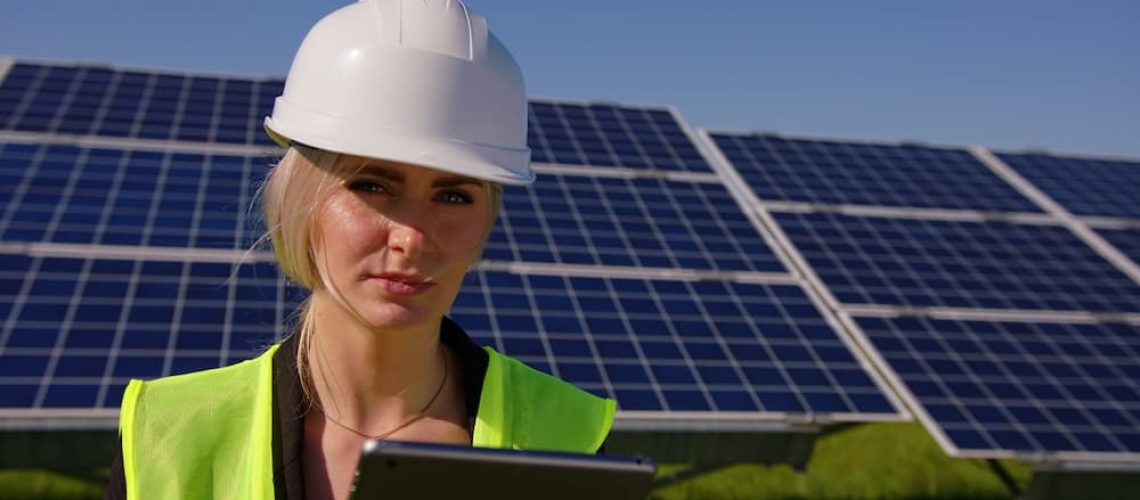With a growing number of home and business owners turning to solar for their energy needs, there’s been an increasing demand for effective energy storage options – and the industry’s top innovators have readily delivered. So lets look at what it means to have a solar battery.
Now, solar batteries are growing in popularity as a smart strategy to maximize the benefits of solar energy. With a battery system like the Tesla Powerwall integrated into your solar power system, you gain the ability to store and use excess solar energy. Essentially, you’re able to significantly expand the capabilities of your solar panels and utilize them to their fullest potential.
But before adding a solar battery to your system, you’ll need to first weigh your options when it comes to AC coupling vs. DC coupling. Coupling is a key component in wiring your solar panels, inverters, and batteries together.
We’re breaking down the differences between AC and DC coupling, giving you a quick and easy guide to picking the option that best suits your needs.
Topics Covered
ToggleAC vs. DC Coupling: What’s the Difference?
Before we compare the two types of coupling, it’s important to explain AC vs. DC electricity:
- DC electricity is the form of energy generated by solar panels. It is also the electricity form stored in a solar battery.
- AC electricity is the form of energy required by your appliances and electricity-powered items.
Both AC and DC electricity exist within a solar energy system. However, there is an important distinction between the different paths that electricity can take as it becomes usable energy for your home or business.
In an alternating current (AC) coupled system:
- Solar panels generate DC solar electricity.
- The DC electricity travels from the solar panels to the solar inverter.
- The solar inverter then turns the electricity into AC electricity.
- The AC electricity is then either (a) used to power appliances in your home/business or (b) sent through another inverter to be turned back into DC electricity for storage within the battery system.
In an AC-coupled system, the electricity that is being stored in the battery must be inverted three times before it can be used.
In a direct current (DC) coupled system:
- Solar panels generate DC solar electricity.
- The DC electricity flows from the solar panels to a charge controller, which feeds it directly into the battery system (where it is stored as DC electricity).
- DC electricity that moves from the batteries to your home/business electrical set-up (or out to the grid) will first be inverted to AC electricity.
In a DC-coupled system, electricity is only inverted one time before reaching your home/business (or the grid).
Let’s move on to the pros and cons of AC coupling and DC coupling – but first, a quick review of some key details.
Do solar panels output AC or DC electricity?
Your solar panels produce DC electricity.
Are batteries AC or DC?
Solar batteries store DC electricity.
Is AC or DC Coupling Better for Your Solar Energy System?
There are advantages and disadvantages to both AC and DC coupling, so choosing the right option depends on a few factors.
Benefits of AC coupling
- Easy installation
- Simple process for retrofit storage installation
- Can be less expensive upfront
- Batteries can charge from both solar panels/the grid
Drawbacks of AC coupling
- Stored electricity has to be inverted three times before it is usable, with each
- inversion costing a small loss of efficiency
- Less efficient than DC-coupled systems
Benefits of DC coupling
- Electricity is only converted once, minimizing any loss of efficiency
- More efficient than AC-coupled systems
Drawbacks of DC coupling
- More complex installation process
- Can require a higher upfront cost
Which one is right for you?
If you have an existing solar panel system and add a battery storage system, an AC-coupled system is most likely the best fit. Because you already have a solar inverter system in place, it will generally be less expensive to use an AC-coupled system than rewire everything for a DC-coupled system.
But if you’re starting from scratch and installing a new solar panel system and battery at the same time, the best investment may be a DC-coupled system. While a higher upfront cost and installation time are usually required, the higher overall efficiency of DC solar battery coupling is worth it.
Make a Sound Investment in Solar for Your Home or Business
Whether you choose an AC or DC-coupled system, solar is a smart way to save money, stabilize your energy costs, and benefit the environment. PEP Solar can help you weigh your options to create a customized solar energy solution that fits your budget, energy needs, and more.
Interested in learning more about how solar batteries like the Tesla Powerwall can work in your favor? Contact PEP Solar to request additional details or get a free quote for Phoenix solar installation today!
Image Source: Rozab / Shutterstock

